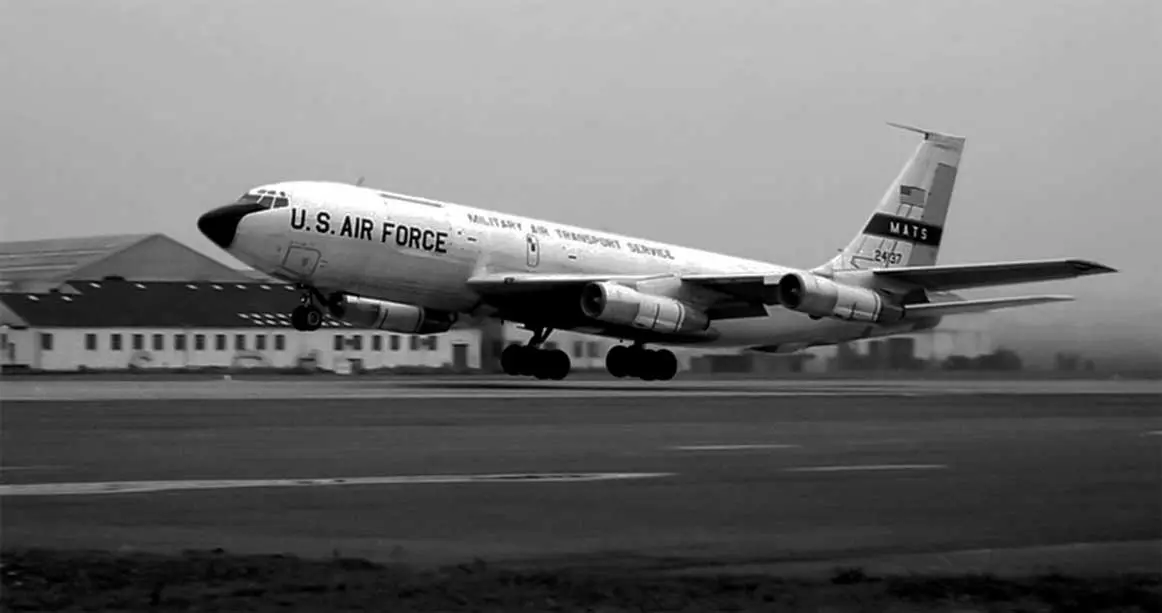GLOBAL PEACEKEEPING: The Role of the U.S. Air Force
By MR. ANDREW HELLERSTEIN, STAFF WRITER
America’s strength is not only in its ability to protect its own people but also in its ability to preserve global peace. Since the 1960s, the U.S. Air Force and Air Mobility Command (AMC) have upheld this ideal, supporting United Nations (UN) peacekeeping operations in some of the most beleaguered parts of the world and assisting military personnel and civilians alike. Across the history of peacekeeping operations in which the Air Force has participated, three major ones stand out: the Republic of the Congo, the Republic of Haiti, and Darfur in western Sudan.
1960: THE REPUBLIC OF THE CONGO
After becoming independent from Belgium in 1960, the Republic of the Congo fell into a civil war between the new government and various secessionist forces. In one of the Air Force’s first forays into international peacekeeping, it deployed major airlift missions to the country to support UN peacekeepers.
Lasting from July 1960 through June 30, 1964, Operation New Tape was the largest Air Force airlift since the Berlin blockade of 1948 to 1949. The U.S. Air Force carried 16,000 of the 20,000 UN troops airlifted from 16 of the 23 nations that sent troops.
Although most support focused on military personnel, the U.S. Air Force also contributed to humanitarian relief. In 1960, the Air Force transported more than 1,000 tons of food to the Republic of the Congo to alleviate a food shortage in the country. More than 40 sorties delivered 974 tons of food from France and Germany to the region. Additional sorties transported more than 100 tons of food from other African countries, such as Togo, to the Congo’s capital city. The struggle between Congolese and Belgian troops during the crisis led to racial attacks in the Congo, and many sought evacuation. More than 2,500 refugees, including at least 300 U.S. citizens, flew out of the Congo on Air Force C-130 Hercules and C-124 Globemaster IIs.
UN peacekeeping forces provided direct combat support to the Congolese government, which led to the defeat of the secessionist forces and the end of Operation New Tape in 1964.
2004: THE REPUBLIC OF HAITI
In early 2004, a coup d’état forced Haiti’s president to flee the country. In order to stabilize the fracturing country, the United States led a multinational peacekeeping force into the area, dubbed Operation Secure Tomorrow.
AMC helped establish this peacekeeping mission by airlifting more than 1,000 U.S. Marines into the area, along with at least 36 other missions involving the deployment of 1,200 short tons of cargo. The 18th Air Force directed airlift operations through its Tanker Airlift Control Center (TACC, now the 618th Air Operations Center) at Scott Air Force Base, IL, for these missions, which were fundamental to establishing the multinational force.
Operation Secure Tomorrow quickly transitioned into a formal UN peacekeeping mission in Haiti to oversee the transition of power, named the United Nations Stabilization Mission in Haiti (or MINUSTAH, an acronym of the French name). MINUSTAH persisted in the country until 2017, fighting armed gangs and providing disaster relief to civilians to preserve the country’s stability.
2006: DARFUR, SUDAN
The War in Darfur is one of the most infamous civil conflicts in modern history, involving ethnic cleansing and genocide. The conflict began in Sudan’s Darfur region in 2004, with several rebel groups declaring war against the Sudanese government. The government responded with a brutal campaign against the rebel groups and the minority populations they claimed to represent.
In 2007, the UN and the African Union initiated peacekeeping operations called the African Union United Nations Hybrid Operation in Darfur, or UNAMID. The goal of this operation was to protect civilians, facilitate humanitarian aid, and mediate between the warring factions. The U.S. Air Force contributed to UNAMID, relying on AMC’s TACC to transport at least 240 containers of equipment to the operation. Airmen from other wings also helped transport troops and supplies from Rwanda to bolster UNAMID, airlifting more than 1,500 Rwandan soldiers and 170 short tons of equipment.
At its height, UNAMID consisted of nearly 27,000 personnel. It helped advance the peace process throughout the conflict, culminating in a peace deal in August 2020. UNAMID ended its mission on Dec. 21 of that year.
From the early 1960s to modern times, the Air Force and AMC have been allies to those affected by conflict around the world. UN peacekeeping operations have prevented dire situations from spiraling out of control, and the support of the Air Force has been vital to these successes. These operations not only protect the security of our allies but exemplify the compassion that is part of our national identity. By upholding peace across the globe, the Air Force and AMC bring to light our nation’s power as a force for good.



